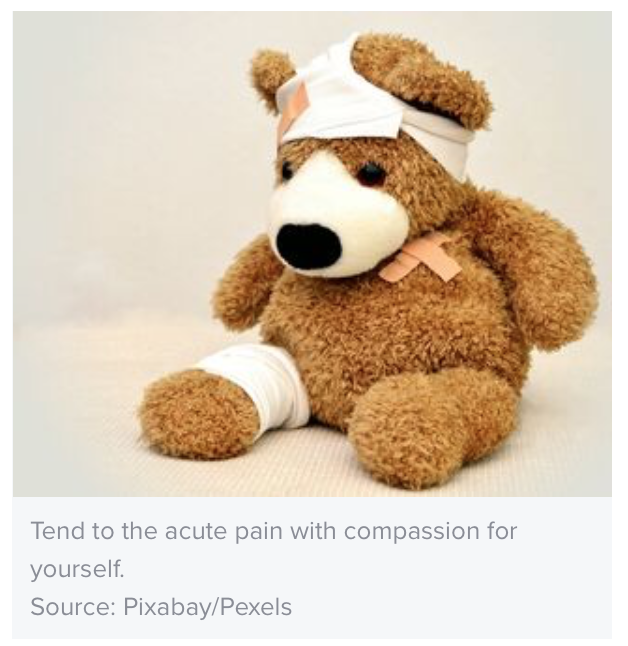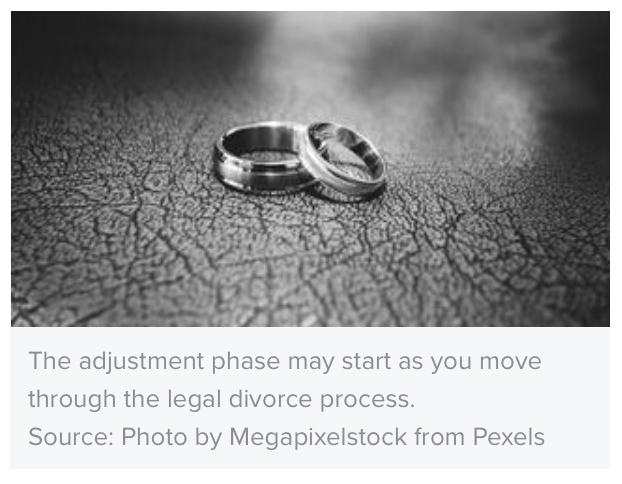Release time: 2021-04-28 13:41
How to Heal From a Divorce?
Healing is possible, with healthy coping skills and time. Here's how.
KEY POINTS
Divorce involves stages of recovery and the process takes time, whether or not you wanted the divorce.
Phases include the acute phase, acceptance phase, adjustment phase and healing phase.
Recovery involves a commitment to positive coping skills and takes one to two years, on average.
 Your spouse has just announced they want a divorce.
Your spouse has just announced they want a divorce.
You’re blindsided and feel like you’ve been hit by a truck. You had no idea they were unhappy because they never told you. Or maybe you were distracted by your career or parenting and didn’t pick up the cues.
Your spouse tells you “I don’t love you anymore” or “I’m not attracted to you” or “I care about you like a friend.”
Or perhaps they blame you for the decision and unload a litany of complaints. They may be “injustice collectors” who remember every disagreement or argument you’ve ever had. Worse are the threats to take away the children, or to “see you in court.”
Or perhaps you knew there were “issues” but you didn’t think they were serious or urgent. You thought you would deal with those problems “later,” when the kids leave home, or when you retire, or when something else happened that pushed you into marriage counseling.
Unfortunately, according to the Gottman Institute research, most people get to marital counseling six years too late. For that reason, marital counseling often fails to save the marriage, although the counseling might help you divorce respectfully.
Under any circumstances, the wounds of divorce will be deep
Even if it is your decision to divorce, your heart will hurt as if it were pierced. Your emotions will “hemorrhage,” as you struggle with the shock, hurt, anger, guilt, or fear. The future you’d envisioned as you stood at the wedding altar suddenly unravels.
This is a life crisis, perhaps the worst you’ve ever experienced. You and your spouse will feel and behave in ways you’d never have expected.
As you face a divorce that you didn’t expect and don’t want, the pain will feel unmanageable at times. Even if it was your choice, the pain of the loss can be overwhelming.
How you can begin to recover
 1. The acute phase
1. The acute phase
As with any devastating wound, the first phase is about stopping the hemorrhage. This phase is about attending to your emotions before you think about any legal actions or major decisions. You may feel out of control emotionally or paralyzed by the shock. You may feel overwhelmed or in a fog.
Do: Give yourself time to process the news. Get support from your friends or family or your therapist. Take the time to take care of yourself. Remember to eat and sleep well so that you can cope with surges of emotion. If you are having trouble sleeping, you may want to talk to your doctor about short-term sleeping aids.
Don’t: Don’t escalate the argument or make rash decisions. Don’t rush out to hire a lawyer. Wait until you feel calmer and emotionally ready. Don’t talk to your children until you and your spouse have decided when and how to tell them. And don’t start financial negotiations with your spouse at the kitchen table.
Don’t: Don't do drugs, drink, or fall back into old, harmful coping strategies.
2. The acceptance phase
Once the “bleeding” is under control, you can begin to attend to the wound. Like most wounds, the bleeding can start again if the wound isn’t treated gently.
You’ll be on an emotional rollercoaster for weeks or months. You’ll swing from anger to grief, from fear to shame or guilt.
Remember that all feelings are okay. Your feelings are a normal response to an abnormal (for you) event. Sit with your feelings and remind yourself that this is a necessary part of processing your life crisis as you move slowly toward acceptance. Emotions will come in waves, and over time there will be more and more periods of calm when you feel the feelings are manageable.
 3. The adjustment phase
3. The adjustment phase
This phase takes place as you adapt to your new circumstances.
By this time you will probably be working through the legal process of your divorce.
You will feel stronger and able to think more clearly. You will have a better understanding of your financial and legal situation. You’ll be developing a plan, both financially and about parenting. You’ll be developing a new vision for the future and you’ll see light at the end of the tunnel.
During this time, continue to take care of yourself to stay healthy and strong. Consider joining a divorce support group. Focus on your children if you have kids.
4. The healing process
Healing takes time. In the meantime, keep busy with friends, family, and work. While allowing yourself to grieve, understand that you will recover.
Take the time to develop or reclaim other interests. It is important to find enjoyable activities, but don’t rush into dating or a new relationship.
Remind yourself that you are worthy and deserving of love.
Develop practices such as journaling to help process your experience.
Find three things to be grateful for, every day, and write them down. With daily practice, this has been shown to reduce symptoms of depression within a month.
Be sure to exercise; even a 20-minute walk, four times a week will help you feel healthy.
If you have a pet, spend more time with it.
Many people have found that nurturing house plants or a garden is healing.
Consider forgiving yourself and your ex. Forgive For Good, by Fred Luskin, is an excellent guide to forgiveness.
Research shows that it takes about a year or two to recover from a divorce.
Like many wounds, this one will likely leave a scar. You will be changed by your experience. While scars are painful reminders of the past, you learn to live with them. Sometimes scars make you stronger.
As you recover and heal, you will learn what you bring to a relationship and what you need or want in a relationship. When you are ready to move on you will take this new knowledge with you into your next relationship.

Ann Gold Buscho, Ph.D., is author of A Parent’s Guide to Birdnesting.
psychology today